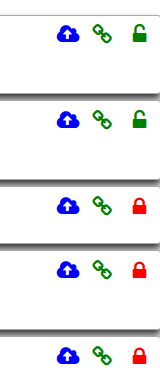Difference between revisions of "Tree editor"
From AMTech WikiDocs
| Line 20: | Line 20: | ||
[[File:ue-search.-jsonld.png]] | [[File:ue-search.-jsonld.png]] | ||
*There are multiples filter criteria depending of the metadata of the resource type, following example is to filter resources type topics | *There are multiples filter criteria depending of the metadata of the resource type, following example is to filter resources type topics | ||
| − | [[File:ue-search-form.-jsonld.png|850px|thumbnail|center| | + | [[File:ue-search-form.-jsonld.png|850px|thumbnail|center|Filter dialog]] |
*For more advance resources' filter functionality including geo-spatial, proximity and resource's semantic use observer | *For more advance resources' filter functionality including geo-spatial, proximity and resource's semantic use observer | ||
(See [[Observers|Observers]]) | (See [[Observers|Observers]]) | ||
Revision as of 19:06, 22 April 2016
- The navigation through resources properties and their relations is done with a single component "tree editor" allowing users to move from branches and edit, create or delete resource's properties or relations
- The three editor has a cohesive experience to CRUD, filter and navegate the resources to be configured or followed.
- Create
- Clone supported just for things and observations instances
- Delete
- Update
- View resource jsonld
- Move forward to tree's brunch
- Move back to tree's brunch
- CRUD operations are control by access control polices, green lock full access, red luck read only
- Filter resources to be configured or followed
- There are multiples filter criteria depending of the metadata of the resource type, following example is to filter resources type topics
- For more advance resources' filter functionality including geo-spatial, proximity and resource's semantic use observer
(See Observers)



